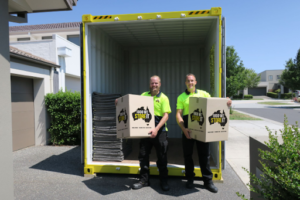Let your health care team know what you’d prefer.
- Keep the lines of communication open. Maintain honest, two-way communication with your loved ones, doctors and others after your cancer diagnosis. …
- Maintain a healthy lifestyle. …
- Let friends and family help you. …
- Review your goals and priorities. …
- Fight stigmas.
Contents
How can I live a life with cancer?
Tips for Living a Longer, Fuller Life With Cancer
- Eat Smart.
- Exercise.
- Keep a Healthy Weight.
- Connect With Friends and Family.
- Do Things You Love.
- Stop Smoking.
- Limit Alcohol.
- Keep Your Appointments.
What are the five most common coping strategies that have been identified for cancer patients?
The most common coping strategies were religion, acceptance, self-distraction, planning, active coping, positive reframing and denial.
How do people cope mentally with chemo?
It is common to have many different emotions when you have cancer. There is no right or wrong way to feel. … You could also:
- write down how you feel.
- join a support group.
- go for a walk or play music.
- make time to relax.
- do mindfulness or meditation.
- use complementary therapies.
How do cancers act when angry?
When Cancer is mad, you will know by the way that we act, and being hurt can make a Cancer feel frustrated about what’s going on. We tend to ignore the ones who have hurt us and hide in our shell to feel upset and comprehend our feelings so we don’t hurt anyone while being upset.
How does cancer make you feel?
How does cancer cause signs and symptoms? A cancer can grow into,or begin to push on nearby organs, blood vessels, and nerves. This pressure causes some of the signs and symptoms of cancer. A cancer may also cause symptoms like fever, extreme tiredness (fatigue), or weight loss.
Can cancer go away by itself?
Spontaneous remission of cancer is defined as the remission of cancer without any treatment, or with treatment that would not be expected to cause a tumor to decrease as much as it does. Spontaneous remission may be partial or complete and may be temporary or permanent. Also known as St.
Can cancer go away forever?
Cancer isn’t always a one-time event. Cancer can be closely watched and treated, but sometimes it never completely goes away. It can be a chronic (ongoing) illness, much like diabetes or heart disease. This is often the case with certain cancer types, such as ovarian cancer, chronic leukemias, and some lymphomas.
How can I stop worrying about cancer?
How to Stop the Fear of Cancer in Its Tracks
- Find a doctor you can count on. Trust is at the heart of all relationships, and the one with your doctor is no different. …
- Accept that you may not need a test. Deborah Korenstein. …
- Use the Internet wisely. Using Dr. …
- Be proactive when you can.
How do you stay positive when dealing with cancer?
Here’s some of the best advice I’ve gleaned about staying positive during my cancer treatment:
- You are your best advocate. …
- Take good notes. …
- Focus on the things you can control. …
- Don’t confine your conversations to health topics. …
- Appreciate your loved ones. …
- Develop a good support network. …
- Never give up.
How do cancers deal with books?
11 Books That Shine a Light on Cancer
- Cancer Made Me a Shallower Person. …
- When Breath Becomes Air. …
- I’m Sorry You Have to Be Here. …
- A Cancer in the Family: Take Control of Your Genetic Inheritance. …
- Help Me Live: 20 Things People with Cancer Want You to Know. …
- Cancer Vixen. …
- What Helped Get Me Through.
How do you distract yourself from cancer?
5 ways to distract yourself during cancer treatment
- Throw a party. What do you do when you don’t know what to do? …
- Listen to uplifting music. …
- Set the tone. …
- Be patient. …
- Learn something new.
Can chemo make you angry?
Coping with Chemo Brain Emotional and mental health challenges such as depression, anxiety, stress, and having trouble sleeping can add to that foggy feeling. Chemo brain can also intensify feelings of frustration or anger.
What should you not do during chemotherapy?
9 things to avoid during chemotherapy treatment
- Contact with body fluids after treatment. …
- Overextending yourself. …
- Infections. …
- Large meals. …
- Raw or undercooked foods. …
- Hard, acidic, or spicy foods. …
- Frequent or heavy alcohol consumption. …
- Smoking.
Can chemo change a person’s personality?
Can chemo affect a person mentally? Chemotherapy can affect a person’s mood, as can other medications such as steroids. It is important that you and your husband inform his doctor of changes in his mood to rule out any medical causes.
Do cancers have a dark side?
05/13Cancer Your dark side is that you’re too jealous but you wouldn’t admit it. You feel jealous when someone else gets the attention you need so much. You are jealous when you’re not in the foreground. But you’ll keep quiet and pretend like everything is okay.
Are cancers smart?
In fact, according to Business Insider, Cancers are actually one of the most emotionally intelligent signs, because they excel at recognizing and reasoning with their own and others’ feelings. … Cancer’s use their emotional intelligence and intuition to assess other people and their emotions, and ultimately help them.
How do cancers get revenge?
Cancerians become very cautious and are in a hungry mood to get revenge, especially if someone they love has been hurt in any way. They will only resort to harsh forms of revenge if the matter has become worse. They will only hurt the person who caused them to do it. So, in this way, a Cancerian is justified.
What are the 7 warning signs of cancer?
These are potential cancer symptoms:
- Change in bowel or bladder habits.
- A sore that does not heal.
- Unusual bleeding or discharge.
- Thickening or lump in the breast or elsewhere.
- Indigestion or difficulty in swallowing.
- Obvious change in a wart or mole.
- Nagging cough or hoarseness.
Does cancer have a smell?
Cancer raises polyamine levels, and they do have a distinct odor. Researchers in this study also found that cancer-specific chemicals might circulate throughout the body.
How long can you have cancer without knowing?
For example, certain types of skin cancer can be diagnosed initially just by visual inspection though a biopsy is necessary to confirm the diagnosis. But other cancers can form and grow undetected for 10 years or more , as one study found, making diagnosis and treatment that much more difficult.
What is the hardest cancer to treat?
Most of the cancers, if diagnosed and treated in the early stages, are definitely survivable. … What Is the Most Survivable Cancer?
| Sr. No. (From most to least) | Type of cancer | Patients expected to survive five years after their diagnosis (percent) |
|---|---|---|
| 1 | Prostate cancer | 99 |
| 2 | Thyroid cancer | 98 |
| 3 | Testicular cancer | 97 |
| 4 | Melanoma (Skin cancer) | 94 |
Which cancer has the lowest survival rate?
The cancers with the lowest five-year survival estimates are mesothelioma (7.2%), pancreatic cancer (7.3%) and brain cancer (12.8%). The highest five-year survival estimates are seen in patients with testicular cancer (97%), melanoma of skin (92.3%) and prostate cancer (88%).
What foods shrink tumors?
Top Cancer-Fighting Foods
- Folate-Rich Foods.
- Vitamin D.
- Tea.
- Cruciferous Vegetables.
- Curcumin.
- Ginger.
Who gets cancer the most?
The cancer mortality rate is higher among men than women (189.5 per 100,000 men and 135.7 per 100,000 women). When comparing groups based on race/ethnicity and sex, cancer mortality is highest in African American men (227.3 per 100,000) and lowest in Asian/Pacific Islander women (85.6 per 100,000).
Can you cut out cancer?
Traditionally, the primary purpose of cancer surgery is to cure your cancer by removing all of it from your body. The surgeon usually does this by cutting into your body and removing the cancer along with some surrounding healthy tissue to ensure that all of the cancer is removed.
Has anyone survived cancer without treatment?
In rare cases, some people may survive for several months or even a year with stage 4 cancer, with or without treatment. Some studies have found that attempting to aggressively treat cancer that has reached stage 4 can actually lead to a drop in the quality of the patient’s remaining life.
Why do I constantly think I have cancer?
When you’re constantly worried that you might have cancer, there’s a possibility that it could be a sign of OCD or illness anxiety disorder.
Why do we fear cancer?
Results: Fears of cancer emanated from a core view of cancer as a vicious, unpredictable, and indestructible enemy, evoking fears about its proximity, the (lack of) strategies to keep it at bay, the personal and social implications of succumbing, and fear of dying from cancer.
Should I worry about cancer at 20?
Cancers are not common between ages 20 and 39, so there aren’t many widely recommended screening tests to look for cancer in people in this age group who are not at increased risk. The risk of cervical cancer is very low in people under the age of 25.



